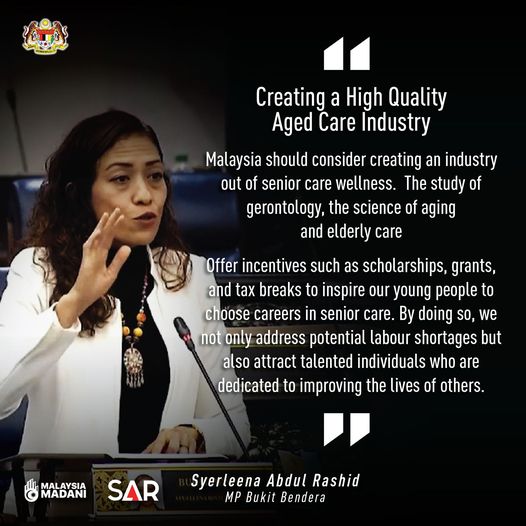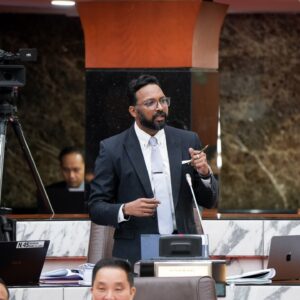
Malaysia is in the midst of a profound demographic shift, with a population that is rapidly aging, it is important for Malaysia to adapt its policies and infrastructure to meet the needs of an aging population and ensure that seniors can lead healthy, active, and fulfilling lives.
Malaysia’s demographic trend shows a gradual increase in the proportion of elderly individuals, largely due to factors such as increased life expectancy and declining birth rates.
This shift presents both challenges and opportunities for the government to rethink approaches to assisted living care facilities as well to offer better options that involves enhancing infrastructure, improving medical and caregiving services, and promoting social and recreational activities to enrich their lives.
To further enhance the care of the elderly, Malaysia should consider creating an industry out of senior care wellness. The study of gerontology, the science of aging and elderly care, plays a crucial role in the realm of medical tourism and the flourishing health and wellness industry. Malaysia stands out as a top destination, particularly in Penang, known for its advanced medical facilities and expertise in geriatric care. Capitalizing on this reputation and diversifying the sector could yield substantial benefits for our nation. By further developing gerontology as part of its medical tourism offerings, Malaysia can attract more international visitors seeking specialized care for elderly relatives or exploring options for their own future needs.
This move would not only boost Malaysia’s economy through increased medical tourism revenue but also enhance its reputation as a hub for high-quality healthcare services. Diversifying the health and wellness sector to include gerontology can stimulate job growth, particularly in specialized healthcare fields, creating new opportunities for professionals and contributing to the overall economic development of the country.
As a way to spur the growth of this sector, government incentives play a crucial role in promoting gerontology as an industry. This involves offering grants and funding for research projects related to aging, as well as providing tax incentives for businesses that focus on senior care. Additionally, the government could create educational programs and training opportunities for professionals in the field of gerontology, ensuring that there is a skilled workforce to meet the needs of the aging population.
Additionally, by investing in research and innovation in gerontology, Malaysia can position itself as a leader in elderly care, attracting experts and further bolstering its reputation in the global healthcare community.
Building a robust economy centered on high-quality assisted living senior care in Malaysia is not just about numbers; it’s about creating a compassionate cycle of care that enriches lives. To achieve this, we must empower our young workforce with the skills and passion needed to provide exceptional care for our elderly population. Imagine a future where our youth are trained in gerontology, nursing, and caregiving, ready to make a meaningful difference in the lives of seniors.
We can make this vision a reality by offering incentives such as scholarships, grants, and tax breaks to inspire our young people to choose careers in senior care. By doing so, we not only address potential labour shortages but also attract talented individuals who are dedicated to improving the lives of others. These incentives must be complemented by clear career pathways that offer opportunities for career advancement, ensuring that those who enter the field have a bright future ahead of them.
Competitive salaries, benefits, and ongoing professional development opportunities are also essential to retain skilled professionals in the senior care sector. Additionally, we can raise awareness about the importance of senior care as a profession through engaging campaigns and partnerships with educational institutions.
By fostering partnerships between the government, private sector, and non-profit organizations, we can further support the development of the senior care sector and create a future where high-quality assisted living senior care is not just a career but a calling—a calling that enriches the lives of our elderly population and brings joy and fulfilment to those who provide care.
SYERLEENA ABDUL RASHID
MEMBER OF PARLIAMENT FOR BUKIT BENDERA



